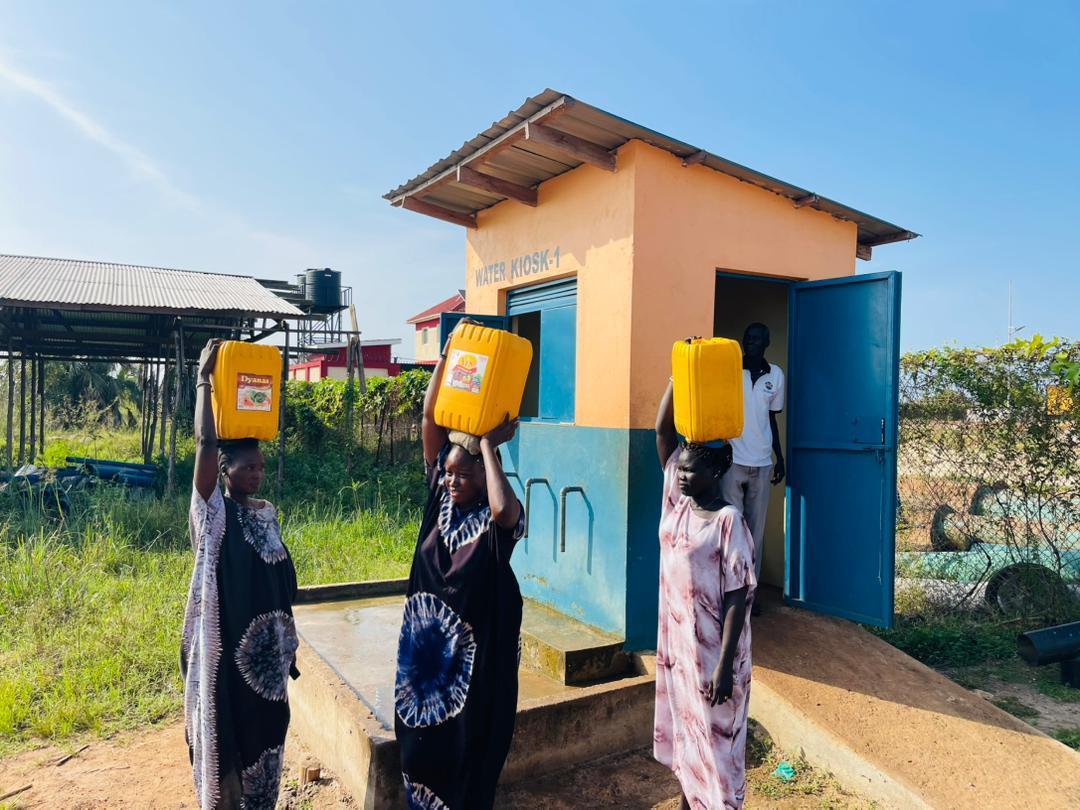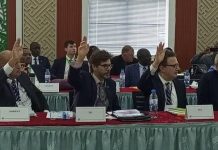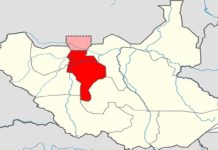Africa-Press – South-Sudan. Just a year ago, residents of Bor would rise before dawn, jerrycans in hand, to fetch murky water from the Nile and shallow wells. The same water that quenched their thirst also carried sickness—cholera, typhoid, and countless stomach illnesses that drained both health and hope.
Today, that story has changed.
In the heart of Bor, pipes now hum quietly beneath the ground as clean water flows from shining taps — a symbol of renewal made possible by the Ministry of Water Resources and Irrigation and the South Sudan Urban Water Corporation, with support from the Kingdom of the Netherlands and KOICA.
The newly inaugurated Bor Urban Water Supply System is more than just a project — it’s a lifeline.
Water that restores dignity and health
At St. Andrew’s School, laughter fills the compound as learners wash their hands before class.
“The water has benefited me as a girl in a sense that now, we can use it to ease ourselves within the school during the bad days (menstruation cycle), compare to before when one could suffer internally or goes home. At times, girls don’t come to schools when we are on period,” says Tuna Wilson shyly. “Now, we can use clean water from the school tap in our dressing rooms. And we don’t miss classes anymore.”
Thon, a Senior Three student who joined St. Andrew in 2016, recalls how water shortage was once a major challenge that often disrupted classes. He says the only community borehole could not serve both the school and nearby residents.
Thon also remembers the health risks they faced, explaining that the borehole water was often dirty and caused waterborne diseases. Since the Bor Water Supply System began operating, he says, the situation has improved greatly, providing clean and reliable water to both the school and the community.
Teachers report fewer absences, cleaner classrooms, and better hygiene among students. For parents, it means peace of mind — their children can now focus on learning, not illness.
Empowering women through work
At one of the bright blue kiosks, a group of women fills jerrycans for delivery. Among them is Adeng Lek, a 32-year-old widow and mother of four, who manages Kiosk 13 inside Bor Market.
“I lost my husband in 2008,” she says. “I started this job in 2015 before it was upgraded to the current modern system. Selling water here helps me pay school fees for my kids. My elder son is now in Senior Three. This tap is my hope.”
Beside her, Agot Pach remembers the days she walked long distances to fetch water. “We used to fight over dirty water,” she says, eyes glistening. “Now I sell clean water. It’s not much, but it feeds my children. I thank God.”
For Adeng and Agot, their work at the kiosk has not only restored their dignity but also given them financial independence.
A job benchmark for youth and engineers
The water project has also opened new opportunities for more than 50 engineers and operators — many of them young graduates, including women who now oversee water treatment and distribution.
“This project is a job benchmark in Bor,” says Yar, a local engineer who operates the water supply system. “We now earn a steady income, and the community trusts us. Before this, we relied on temporary jobs.”
For these young professionals, the system represents more than employment — it’s a career built on service and pride.
Water vendors load jerrycans of clean water onto their bicycles for delivery – Photo credit: Wol Mapal
Turning water into opportunity
In Block 3 on the outskirts of Bor, Achol Tereza Jok tends to her small vegetable garden, watered from a tap she installed only months ago.
“With this water, I grow okra, banana and tobacco for both consumption and sale,” she says. “I don’t have to wait for my husband’s income anymore. I am independent.”
Achol’s story mirrors a quiet transformation — one where clean water not only restores health but also creates livelihoods.
From survival to sustainability
Before the project, Bor residents depended heavily on unsafe sources: rivers, ponds, and boreholes often shared with animals. Outbreaks of waterborne diseases were common, especially during the rainy season.
Today, the modern system delivers safe and treated water to homes, schools, and public kiosks. Health officials report that cases of water-related illnesses have dropped significantly since operations began.
A ripple of hope
As the sun sets over Bor, the sound of running water fills the air — not from the riverbanks, but from taps that tell a new story of progress, partnership, and perseverance.
For the people of Bor, clean water no longer comes with fear. It comes with dignity, opportunity, and the promise of a healthier future.
All this was made possible through the generous support of the Kingdom of the Netherlands, whose commitment to improving access to clean water continues to change lives across South Sudan.
Appreciation also goes to KOICA and UNICEF for their technical and financial support, and to the Ministry of Water Resources and Irrigation together with the South Sudan Urban Water Corporation (SSUWC) for their leadership and implementation.
Their joint efforts have not only brought safe water to Bor but also restored dignity, created livelihoods, and given the community renewed hope for a brighter and healthier future.
For More News And Analysis About South-Sudan Follow Africa-Press






